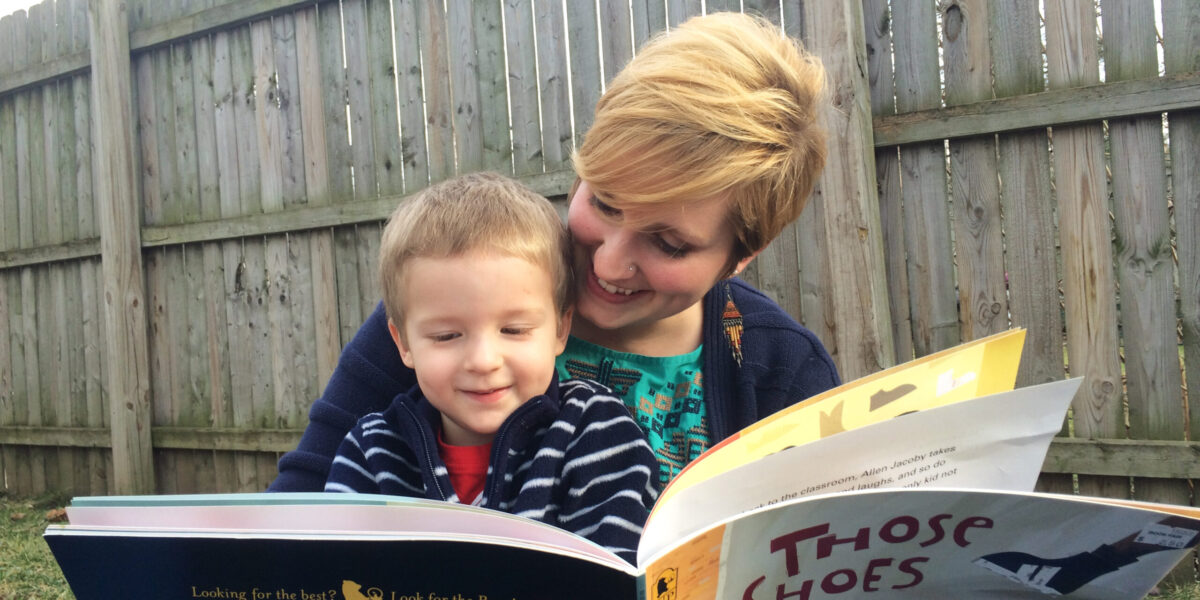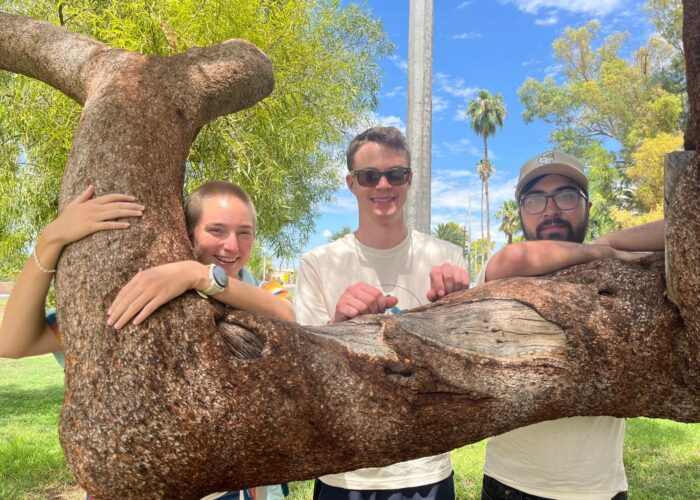Many of us can remember important or fun books from our childhood that shaped us in some way. If you were not read to as a child, perhaps you’ve since been the reader. Either way, some stories stick with us and form our character in ways we don’t think about unless someone asks us specifically to contribute to a list such as this … so that’s what I did. I asked a few friends for children’s books that helped to shape them. Working at Mennonite Mission Network has exposed me to many people of good character; people who are making strangers into friends and loving God while serving others around the world. I have two young children of my own, and I want to have the best chance of forming them into people such as these.
Miss Rumphius by Barbara Cooney. Alice Rumphius longed to travel the world, live in a house by the sea, and do something to make the world more beautiful. The countless lupines that bloom along the coast of Maine are the legacy of the real Miss Rumphius, the Lupine Lady, who scattered lupine seeds everywhere she went. These flowers become the physical example of what it looks like to spread joy and beauty throughout one’s world. This book teaches that small acts of love and beauty are what matter most because they live on after us.
— Melissa Jantzi of Harrisonburg, Virginia
Brother Juniper by Diane Gibfried. Brother Juniper was a very generous Brother … so much so that he ends up giving everything away to those in need while the other Brothers are out of town. On returning, they are astonished to find Brother Juniper standing where the church once stood. On Sunday, hundreds of people come to the site and Saint Francis says, “See what a fine church Brother Juniper has built.” My family really enjoyed the illustrations and laughed in some places during the story, but in the end, we were so touched, we cried. The truth of what an act of generosity can do to touch another, and how one person had touched so many, was overwhelming.
— Cynthia Friesen Coyle of Goshen, Indiana
The Story of Ferdinand by Munro Leaf. Ferdinand’s fellow bulls’ greatest goal is to take part in the bullfights in Madrid, spending their days snorting and fighting and showing off. But Ferdinand wants only to sit under the cork tree in the meadow, and smell the flowers. Ferdinand does end up going to the bullfight, but proves true to himself in the end. This story, of course, has an underlying pacifistic theme. But the work also speaks to me of nonconformity to a peer group, or society, that has specific expectations and norms; of the contentedness in being satisfied with one’s own company; and of the satisfaction gained in an appreciation for the simplest things in nature. The long-suffering and unconditional love shown to Ferdinand by his mother is also notable. She is keeping watch, checking in, letting him know she cares, and then she lets him be Ferdinand.
— Heidi Eash of Bristol, Indiana
King Midas Greek mythology. God Dionysus was very pleased with King Midas and asked what he wanted the most in his life. King Midas wished everything he touched could turn to gold, even after being warned of potential tragedies. Unfortunately, after being granted his wish, he was unable to eat or drink, and everyone he touched had turned into golden statues. Realizing his mistake and greed, Midas went back to Dionysus, desperately pleading with him to free him from the “curse.” His wish was granted again. As a child, the story of King Midas had a profound insight in my life. To me it showed that tragedy happens when greed takes over. Materialism does not constitute true happiness, love and peace.
— Rose Mtoka of Musoma, Tanzania





